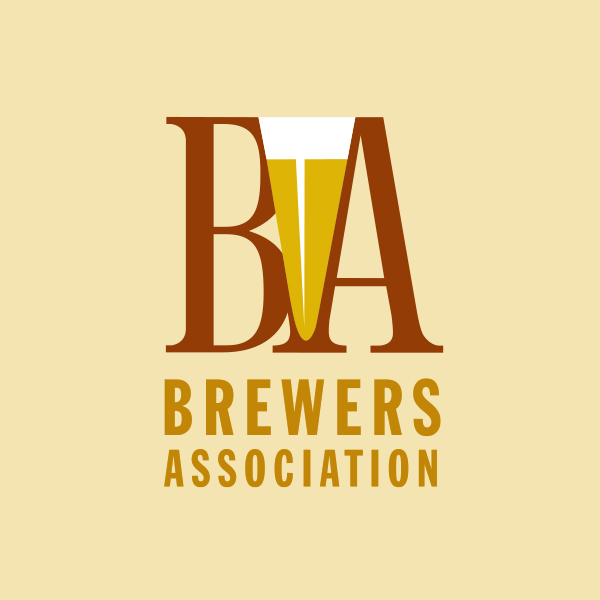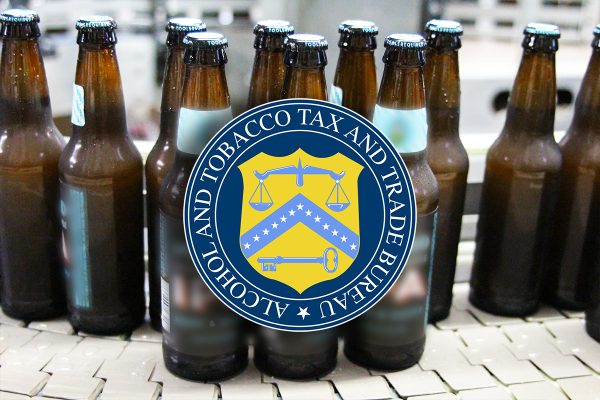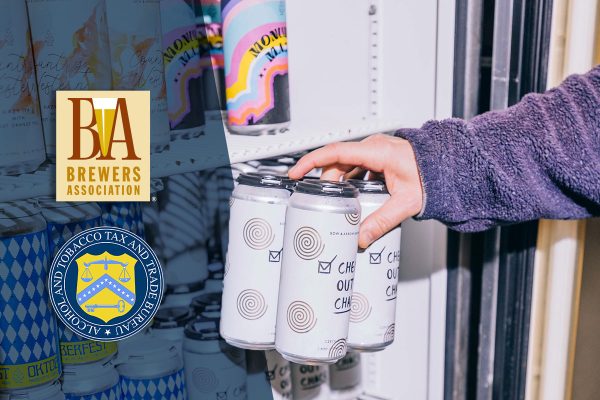Over the past six weeks, the Brewers Association’s (BA) government affairs team has worked on responding to the Alcohol and Tobacco Tax and Trade Bureau’s (TTB) initial action concerning possible changes to labeling regulations. The TTB is considering mandatory disclosure rules for alcohol content, major allergens, nutritional information, and ingredients, and has thus far held two “listening sessions” for interested parties to share initial thoughts on the various issues under consideration. Written comments are also being accepted through March 29. The BA participated in the listening sessions and is preparing written comments for submission.
The opportunity to achieve positive change typically comes with the potential for some risk (no risk, no reward) and the labeling issues under discussion are no exception. While there are clearly positive aspects to additional label disclosures, answering the questions about how, when, and where these changes are implemented is extremely important to minimize any negative consequences. Implementation must be done with an even hand and with careful consideration, otherwise the inherent positives can quickly turn into negatives for small brewers.
In keeping with the BA’s longstanding commitment to transparency and a consumer’s right-to-know, we generally support the disclosures under consideration as they convey information important to certain consumers, and in the case of allergens, information relevant to the health and wellbeing of those affected consumers. We maintain, however, that realizing the positive nature of these disclosures should not come with negative consequences for those required to meet any new mandates. As such, any new labeling rules should not disproportionately impact small businesses or suppress innovation and creativity.
Turning to the proposed disclosures, let’s look at what it would take to maximize the positive and minimize any negative impacts of these potential new mandates:
Alcohol Content
- Alcohol content information may help consumers drink responsibly and, as such, disclosure of alcohol content should be on-label in a consumer-friendly format, making the information easy to understand.
- Consumers are already familiar with the concept of alcohol by volume (ABV), which should serve as the basis for mandatory alcohol content labeling.
- Any new rule should establish tolerances and validation methods achievable by small producers without the need for expensive equipment or outside laboratory testing.
Allergens
- Due to the serious potential health impacts for certain individuals, disclosure of major allergens (the “big nine” mandated for disclosure on most food) should be on-label.
- The proven and effective approach to allergen labeling regulations and guidance implemented by the federal Food and Drug Administration (FDA) should serve as the basis for alcohol beverage disclosures, taking into account the different labeling rules that apply under the TTB’s rule.
Other Nutritional and Ingredient Information
- To provide transparency and at the same time avoid costly label redesigns and save valuable label “real estate,” this information should be accessible via an on-label QR code (with the option to include full information on-label if desired).
- Nutritional disclosure should follow the TTB’s successful policies towards light beer and similar products, disclosing calories, carbohydrates, protein, and fat. Additionally, reasonable tolerances and allowing the use of formulas to quantify nutritional constituents should avoid the need for expensive equipment or outside testing services.
- Ingredient disclosures must recognize the substantial transformation that occurs during fermentation and accordingly should be limited to ingredients that remain in the finished product (e.g., no need to list processing aids and other inputs not left in the final product).
Some other considerations:
Timing and Timeline
- Given the number of issues under consideration, the TTB should establish one effective date for implementation of all new requirements and should authorize up to a three-year phase-in period of new requirements to allow companies to update their labels, packaging, websites, etc.
- The monetary costs associated with label redesign and printing will be substantial for small producers. Multiple effective dates for new requirements would lead to multiple redesigns and print runs, greatly increasing the financial burden on all producers.
Small Batch Products
- The regulations should include reasonable accommodations for small-batch products from producers of all sizes.
- For such products, the rules should provide for alternatives that small businesses and brewing operations can readily meet such as expanded labeling tolerances and/or disclosure in ranges based on standardized tables or formulas.
- Faced with the choice of expensive testing for each batch of product or discontinuing such products, many brewers likely would forgo small-batch products or avoid sales in interstate commerce (i.e., across state lines), decreasing innovation and competition in the industry.
While the process of considering new labeling regulations is just getting underway and will likely take several years to come to fruition, BA member voices in support of fair and equitable provisions that don’t stifle small brewer innovation will be essential to realizing the positive opportunities without incurring the negative consequences. The BA will continue to update members at critical points along the way and we encourage your active engagement as these fundamental issues, with significant impacts to the brewing industry, are considered and implemented.






